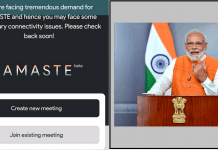It is but common knowledge that the startups aim to become big and strive to reach those heights of those big brands whom they have been idolizing for years during their years of struggle.

However, it is not just the startups that learn a lot from the functioning of the big businesses. A Forbes report has pointed out that big businesses, too, have many lessons to learn from startups.
The big brands are onto mimicking startups by building ideation labs and incubators. They are developing startup-like cultures through flat organizational structures and open-seating layouts. They have come to realise that if they do not disrupt the industry, it would be done by someone else.
Following are the three basic lessons that big brands ought to learn from startup –
Knowing one’s customer well
Successful startups understand their customers and their needs very well.
“They may not have the resources for sophisticated market research or focus groups, but they speak to customers directly and so understand their pain points, desires, and experiences first hand,”
Vivaldi, a leading brand strategy firm, explains.
Often startups are formed as the result of founders having an unfulfilled need in their own lives and addressing it.
Vivaldi gives the example of Hello Alfred, a startup that offers its users the service of a concierge, on-demand. It was launched to help people tackle the long working hours as well as the various other important works in one’s everyday lives.
Being one’s own customer helps one understand which part of the customer experience to focus on and where to think about maximising the human touch and not take into consideration the mere monetary transactions.
Having access to and analyzing big data is indeed helpful in identifying market trends and developments. However, having first-hand interactions with customers where they can be observed closely about their needs and uses gives a nuanced understanding of the consumer behaviour. Data and statistics are all great, but it is essential for the big brands not to lose their touch with the needs of their consumers.
Focusing on the employees
The smaller the company, the better the understanding of how important employees are for its success as each employee’s impact is more visible.
“Successful startups are often best in class in acquiring and developing talent effectively,”
Vivaldi says.
This is because startups need to articulate clearly what they stand for and have to ensure that the people they hire believe in the brand’s purpose as much as the founders for one crucial reason: employees can be the biggest advocates and proponents of the brand to customers. The employees of a startup become the biggest advocates and proponents of the brand to other consumers. Therefore, it is important for the startups to hire those who are on the same page as that of the employers, they need to believe in the same cause.
Talking about Apple, whose employees live for the brand and its purpose, Vivaldi points out that it is essential that bigger brands apply the brand management technique from within and turn employees into brand ambassadors.
Having room for experimentation
Owing to the shortage of financial resources and time, startups often develop products quickly and test them at an early stage. Rarely, does the initial version of the product developed by the startup gains success.
Rather, a minimum viable product (MVP) is brought to a smaller audience so that one gains immediate feedback and user experience. Bad ideas are nipped in the bud and the good ones get ample time to hone themselves.
Flickr started as an online role-playing game before becoming the successful image and video hosting platform it is today, it was pointed out.
But the big brands often fixate on the notion of perfection and do not treat failure as stepping stones to success. Rather they are seen as mismanagement. The big businesses need to be more open-minded about experimentation so that a series of small experiments helps to efficiently build a product that is truly relevant to customers.
The new era heralds digitalization and dynamic customer behavior. Therefore, it becomes crucial for companies to listen to their customers and address their pain points and needs in real-time.
It is rightly noted that the big brands can learn a lot from the ways of functioning of the startups that would bring them closer to the customer frontlines.









